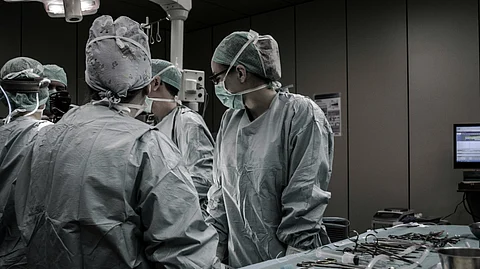
- Home
- MedBound Hub
- InternshipInternship
- BiographyBiography
- InterviewInterview
- Medicine
- Pharmacy
- Physical Therapy
- Biotechnology
- College/InstituteCollege/Institute
- Dentistry
- Blog
- Wellness & Nutrition
- Nursing
- Opinion
- Videos

In a significant development, the Brihanmumbai Municipal Corporation (BMC) has announced plans to establish a new medical college in Govandi, Mumbai.
This initiative, which is set to incorporate 100 MBBS seats along with a 580-bed teaching hospital, aims to address the growing healthcare needs of the city.
The project will be executed under a public-private partnership (PPP) model, ensuring a fusion of public welfare and private management expertise.
Setting the Scene: The Need for More Medical Seats
The decision to establish a new medical college comes amid rising concerns over healthcare access in Mumbai, especially in its eastern suburbs. With only two existing medical colleges in the city-Grant Medical College and St. George's Medical College, both run by the state, it has become imperative to increase the number of medical seats. Hospital beds in municipal institutions face pressure due to a burgeoning population, underscoring the need for additional facilities.
Deputy Municipal Commissioner (Health) Sharad Ughade confirmed that a private entity has shown interest in setting up the college, which is expected to significantly alleviate the burden on municipal hospitals. Currently, the eastern suburbs only host a single large municipal hospital in Ghatkopar, unlike their western counterparts, which are better equipped with healthcare institutions.
A Partnership for the Future: The PPP Model
Under the PPP framework, the contractor will not only construct but also operate and maintain the medical college while adhering to the standards laid down by the Maharashtra Medical Council (MMC). This model has been adopted to attract private investment, expertise, and innovation into the healthcare sector, optimizing resources to enhance patient care.
The college is poised to be attached directly to the existing Pandit Mandan Mohan Malaviya Shatabdi Hospital, which is set to become operational soon. The project is seen as a long-term solution, with an expected timeline of five years for completion.
Impact on Local Healthcare
The new medical college is poised to have a transformative effect on local healthcare in several ways:
Increased Capacity: The establishment of 100 new MBBS seats will directly increase the number of qualified healthcare professionals in Mumbai, thereby addressing the shortage of medical practitioners.
Enhanced Patient Care: With a 580-bed teaching hospital, patients in the region can expect more comprehensive and immediate care, reducing overall wait times and improving service quality.
Community Engagement: The college is expected to engage with local health initiatives, pushing for preventative care and health education to enhance community awareness about health issues.
Job Creation: The establishment of the college will create jobs not only within the institution but also in supporting industries, thereby bolstering the local economy.
Balancing Aspirations with Concerns: Public Sentiment
While the initiative has been met with optimism, it also raises concerns among certain sections of the population. Recently, there have been protests against the privatization of public hospitals in the area, advocating that assistance should remain accessible to all, especially for low-income families. Critics argue that prioritizing profit over people might deepen health inequities in a city where healthcare disparities are already pronounced.
As we look forward to this new establishment, it is also crucial to contemplate how such initiatives might impact community health and access to medical education in the region.
Conclusion: A Diverse Future for Healthcare in Mumbai?
The establishment of a new medical college represents a pivotal shift in Mumbai's healthcare landscape, potentially easing the burden on existing facilities and preparing future medical professionals to cope with an evolving healthcare system. However, as Mumbai navigates this transition, it raises an important question: How can we ensure that the benefits of such developments are equitably distributed among all citizens, particularly in a metropolis riddled with existing disparities?
This conversation will remain crucial as stakeholders navigate the intersection of public welfare and private enterprise in the quest for improved healthcare services.
(Rh/Dr. Divina Johncy Rosario/MSM/SE)
